'We Were Once a Family: A Story of Love, Death, and Child Removal in America' by Roxanna Asgarian
'In this book, I'm not a passive observer of injustice.'—Review #207

I am not a passive observer of this book (to borrow the quote above). Donna and I have been friends with Roxanna and her husband, Paul, for years. He and I used to work together, and he gave BoG its ‘Hard G’ slogan. We’ve visited them in Texas, where they now live, and are always excited to hang out when they’re back in Brooklyn. Last year, they were in town when Roxanna collected the J. Anthony Lukas Work-in-Progress Award from the Columbia Journalism School for ‘We Were Once a Family.’ We bought the book when it became available for preorder, and when it arrived last month, I had to wait for Donna to finish it before I could read it. I didn’t have to wait long. This deeply and brilliantly reported work of investigative journalism is so powerful she couldn’t put it down. She read it in a day.
Here’s the cover:
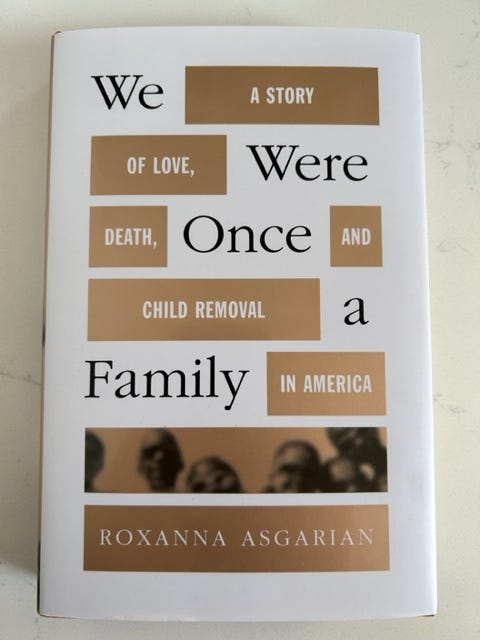
Two women drugged and killed their six adopted children and themselves when they drove off a cliff in Northern California in 2018. The story got national attention (Donna remembered it, but I had forgotten), and much of the focus was on why Jennifer and Sarah Hart, a married white couple, did such a horrible thing to the children—Ciera, Jeremiah, Abigail, Devonte, Hannah, Markis—who were Black and mixed-race, and between the ages of 12 and 19. But little was known about where the two groups of three siblings came from, why they were in the foster-care system and how they ended up with the Harts. ‘We Were Once a Family’ tells their story. It also exposes how a government agency meant to keep children safe often does the opposite and is plagued by a legacy of racism, cronyism and bureaucratic indifference. Seriously, what’s revealed about Child Protective Services in Texas, where the children originally were from, and around the country is chilling, and I was stunned by what I read, like:
Roxanna spent years reporting this story and building trust with the birth families. Through that close reporting, we see harrowing and heartbreaking moments, from the mothers’ struggles with abuse, drugs and metal illness, to relatives of the children denied custody due to the bureaucratic and regulatory deck being stacked against them. We see a surviving brother still in foster care seek out and find his father, and then later risk losing his own child to the state. We see a government that’s quick to separate children from their birth families—disproportionately for families of color. And we glimpse what life was like for the children with the Harts, through accounts from people who knew or encountered them. One of the most harrowing is from a former neighbor who was awoken in the middle of the night to find one of the young girls at his front door, saying she was starving and a victim of abuse. The book forces us to consider whether foster care is salvageable, or if resources are better spent to support struggling families and keep them together. Either way, it’s clear the powers that be need to:
‘We Were Once a Family’ is an intense book and a tremendous feat of reporting. Roxanna writes that she isn’t a passive observer in this story, and at times she becomes a direct participant in it. But I never felt she was trying to steer the story in any false or forced direction. The facts and the families speak for themselves. What shines through is the humanity of the children, and the people who loved and lost them. I learned a lot from her book, and you will, too. I urge you all to read it.
How Chapter 1 begins:
It was a mild December day in Houston, and Dontay Davis had started a fight at school again. His cousin Boogie found him in the halls of the Gregory-Lincoln Education Center, the Fourth Ward school both boys attended. It was 2006 and Dontay was in fifth grade. Boogie was a couple of years older, but he’d flunked a grade and so was just one year ahead.
Dontay had always been a fighter. Sometimes fights started when a kid would say something to him he didn’t like, but other times he’d pick them himself. He wanted to show the others in his school that he wasn’t a punk, and he told himself that’s why he did it, but really, deep down, he liked the way it felt to exchange punches, even when he lost. It released something in him he was always carrying; for a moment, he felt clear and light. The fight that day, he remembers, had been with another boy over a girl in class. So when Dontay met up with Boogie in the hallways at school, he expected his cousin to talk about that. Instead, Boogie asked him if he knew what was going on at his house.
The lightness vanished and a pit landed in Dontay’s stomach as he heard the words come out of his cousin’s mouth. Before Boogie had even told him what was happening, he knew that it was Child Protective Services, and he knew he was going to have to leave.
Who they thanked:
In her acknowledgements, Roxanna thanks the children’s family members who participated in the book, but also her family, friends, supporters and editors. I was excited to see a few folks whom I’ve worked with in my career name-checked there.
My rating:
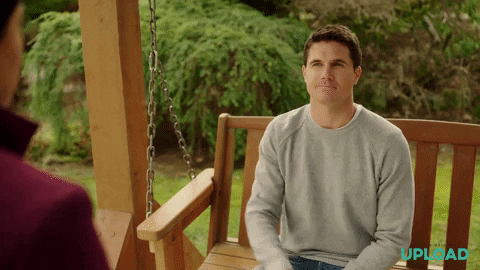
‘We Were Once a Family: A Story of Love, Death, and Child Removal in America’ by Roxanna Asgarian was published by Farrar, Straus and Giroux in 2023. 297 pages, including notes. $26.04 at Bookshop.org.
What’s next:
Before you go:
ICYMI: Review #206
Do this: Roxanna will discuss her book with Sarah Weinman at Greenlight Bookstore in Fort Greene on May 3 at 7:30 p.m. Click here to register. Donna and I will see you there!
Read this: For more about ‘We Were Once a Family,’ here’s an interview between Roxanna and Jessica Ferri in The Los Angeles Times.
Read this, too: ‘My Wild Weekend at the Philip Roth Festival’ by Erin Somers in Esquire is a funny and insightful look at Roth and what he means to his admirers and to literature. Donna is a big Roth fan, and has many of his novels, but I’ve only read one. I’ll have to read more if she wants us to trek over to Newark to catch next year’s event. (She wanted to go this year, but foot surgery prevented it.)
Hear this: I just started listening to ‘Unburied Books,’ a podcast ‘reading its way through the NYRB Classics.’ I love the NYRB’s imprint, was a subscriber for years, and have almost an entire shelf full of them. I’m making my way through the most recent episode where hosts Dylan Cuellar and Kassia Oset discuss ‘Turtle Diary’ by Russell Hoban with guest Ana Gavrilovska (who writes the terrific Sick Sad Motherslug newsletter about music, books and other cool stuff). I read ‘Turtle Diary’ years ago, but don’t remember much about it. But I’m excited to reconnect to it, and to check out more episodes!
Thanks for reading, and thanks especially to Donna for editing this newsletter!
Happy Easter, Happy Passover and Happy Ramadan to all who celebrate. Until next time,
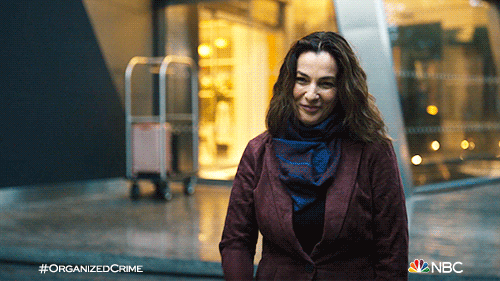
MPV





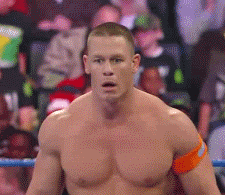
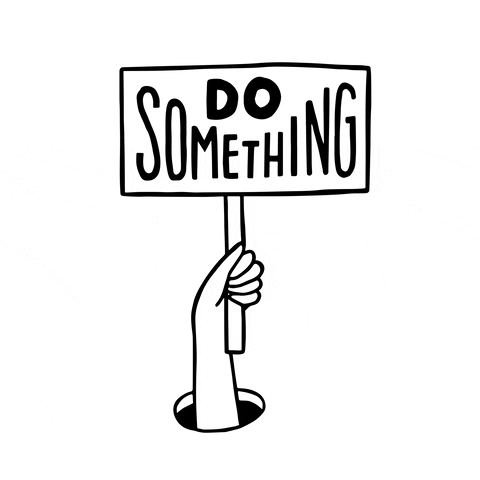
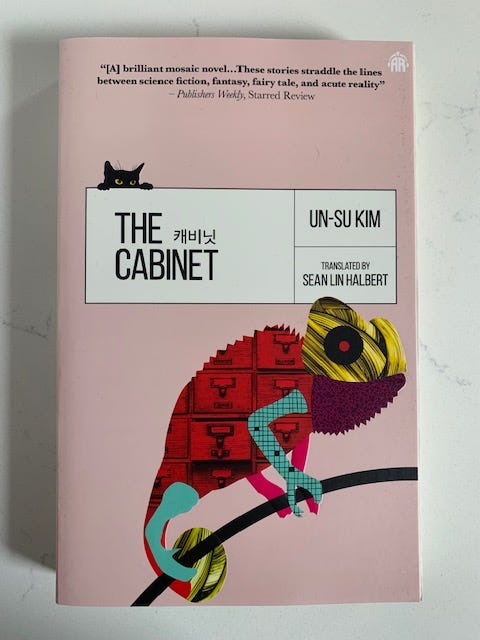

I will read this. I remember the case very well. As I read this review I realized that I'd only focused on the shocking tragedy, not every step and failure of our system that led to it.
I’ve been trying to prepare myself for this one. It’s going to be a hard important read. Thanks for the review!